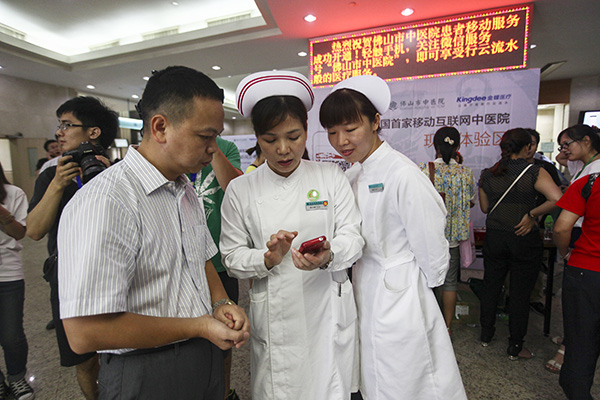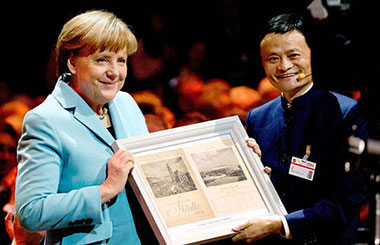Chinese online healthcare market worth 17b yuan
(Xinhua) Updated: 2015-11-11 11:16
 |
|
A medical worker shows a patient how to use WeChat to access hospital services in Foshan, Guangdong province. [Photo provided to China Daily] |
Last year, it was worth 10.9 billion yuan, indicating strong growth momentum, according to iResearch.
Medical and healthcare services are not evenly distributed in China, with 80 percent of them in big cities. Hospitals in Beijing, Shanghai and Guangzhou are notoriously crowded as patients across the country swarm to visit experienced doctors.
Companies such as Spring Rain and Kingdee are wading into the online market to make health care more accessible. Kingdee launched "M-health", (or Mobile Internet Health) last year and forged a partnership with 160 hospitals by August.
"Within a year since we went online, we have had more than 1.3 million subscribers and served more than 100 million patients. The number of transactions on the platform hit more than 2.5 million," said Chen Dengkun, general manager of Kingdee Healthcare and Medical Software Technology Co Ltd.
Online healthcare will become more popular due to good service and convenience, said Zhang Rui, CEO of Spring Rain.
- Chinese online healthcare market worth 17b yuan
- Record-breaking sale: Alibaba sells $1.6b goods in just 12 minutes
- Central bank vows to innovate, improve macro-control measures
- Guangdong rolls out new smart technology to catch fake goods
- Delivery firms take express route to riches on biggest day of the year
- Kangning Hospital launches $87.7m float in Hong Kong
- AIIB will introduce anti-graft safeguards
- Rural strategy entices customers















